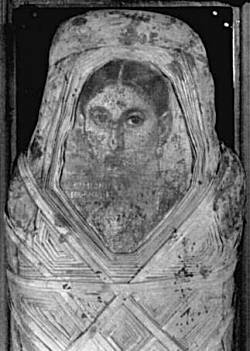Library
Alexander the Great -- the Conquests as a source of knowledge
The Founding of the Library and the Mouseion
The Egyptian Section of the Alexandria Library
The Papyri: Evidence of Greek and Egyptian Scientific Interchange
The Pinakes -- a Bibliographical Survey of the Alexandria Library
The Alexandria Library -- " The Memory of Mankind"
Appendix 1 -- The Contents of the Alexandria Library
Appendix 2 -- The End of the Library
References
The Modern
Library
BIBLIOTHECA ALEXANDRINA--The revival of the Ancient Library of Alexandria
Back to Alexandria Home Page
According to one version, Athenaeus (I.10) asserts that Philadelphus purchased the books for a large sum of money; whereas Strabo (12.1.54), following another tradition, reports that Aristotle's books passed on in succession to Neleus, and were subsequently sold by his family to the great book collector, Apellicon in Athens, whence they were later confiscated by Sulla in 86 BC. who carried them away to Rome.
Should there be any veracity in these accounts, a solution to their conflicting contents is perhaps to suggest that they deal with two different things.
 The one reported by Athenaeus, could be concerned with the collection of books from 'Aristotle's library' amassed at his school in Athens which Philadelphus was able to purchase during the time when his former tutor, Straton was head of the Lyseum. This suggestion may find support in Strabo's statement that Aristotle ranked "first as a book collector and taught the kings of Egypt the institution of a library" (13.1.54).
The one reported by Athenaeus, could be concerned with the collection of books from 'Aristotle's library' amassed at his school in Athens which Philadelphus was able to purchase during the time when his former tutor, Straton was head of the Lyseum. This suggestion may find support in Strabo's statement that Aristotle ranked "first as a book collector and taught the kings of Egypt the institution of a library" (13.1.54).
Strabo's account, on the other hand, is apparently concerned with the personal writings of Aristotle and Theophrastus, which were bequeathed to Neleus and eventually confiscated by Sulla. Plutarch's remark gives weight to this understanding when he says that the Peripatetics did not possess the original texts of Aristotle and Theophrastus, because the legacy of Neleus had "fallen into idle and base hands" (Plu., Sulla 29).
The wide-spread belief that Aristotle's library was deposited in Alexandria, gave rise in the Middle Ages to the credence that Aristotle himself may even have taught at that city.3
Photo: Mummy portrait of Hermione, grammatike (woman of letters)